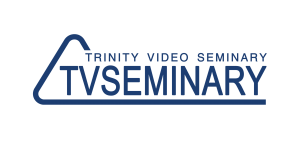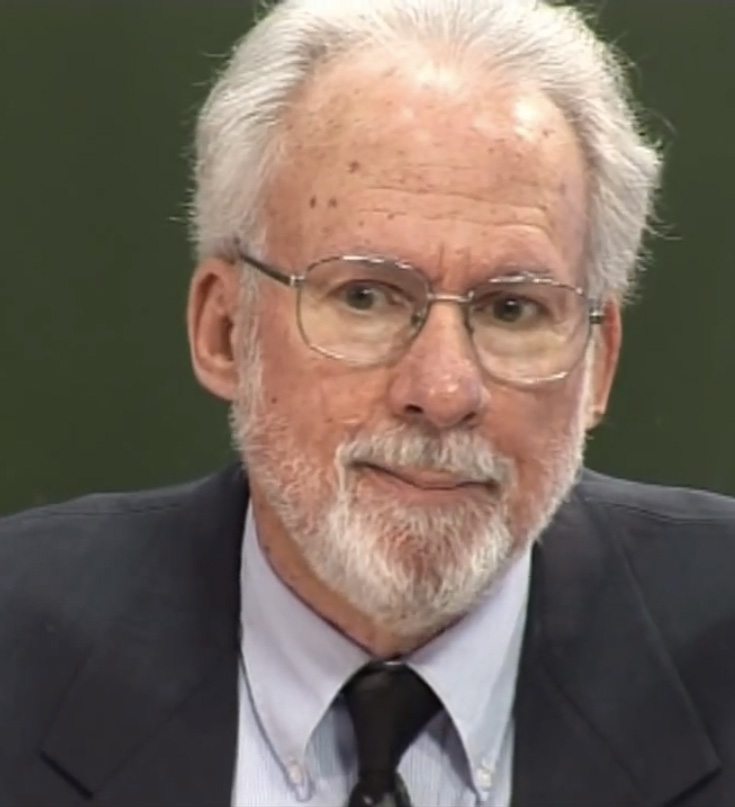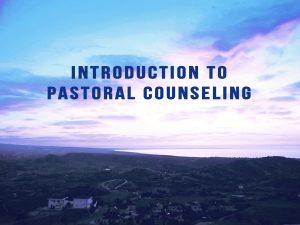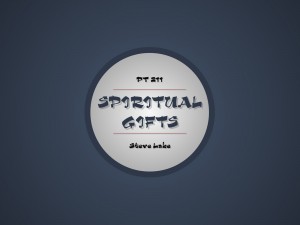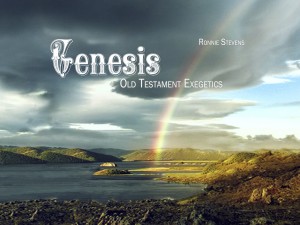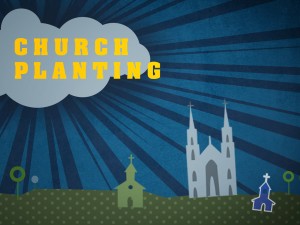World Religions
Course Description
This invaluable course from an expert in comparative religious studies surveys the world religions and ideologies from the viewpoint of a Christian experienced in interfaith dialogue. It will expand your global knowledge about various worldviews and will help you better grasp how religion functions in the global village.
Course Objectives
This course will help students:
- to explore and analyze world religions and worldviews, including African traditional religion, Buddhism, Christianity, Confucianism, Hinduism, Islam, Judaism;
- to assess the strengths and weaknesses of different religious systems and ideologies;
- to understand the current issues in the pluralistic world;
- to appreciate cultural diversity and empathize with people from other cultures;
- to participate in debates concerning the role of religions in modern societies;
- to focus on the mission of a Christian church.
Course Outline
Lecture 1. Introducing the Course
There are many people in the world who are not happy about the religions. Why is religion such a controversial question? In this lecture David Shenk invites us to think about the definition of a world religion and then shares his personal journey in the world of religions and provides a unique insight into the nature of the Gospel in lively interaction with the religions.
1.1. What Is Religion?
The world seems to be very religious. But what is religion? How is this for an answer? A system of beliefs and practices related to the mysterium that seeks to provide answers to the ultimate questions. In this session David Shenk explains why there is no God in that definition and why mysterium is a better word to use.
1.2. My Journey in the World of Religions
David Shenk wants to begin this lecture by sharing his journey through life because his life has been very involved in the world of religions. It is like a book with many chapters, describing his childhood among the Zanaki people, his learning to follow Jesus in a Mennonite church, his missionary assignment in Somalia and Kenya, his ministry in the USA and Central Europe. You will enjoy listening to exciting stories about David Shenk’s interaction with international communities.
1.3. The Gospel – the Great Surprise
In this session David Shenk shares the Gospel narrative in response to the imam’s explanation that there is nothing surprising in Islam. He emphasizes the fact that the Gospel is the great surprise within the context of all religions and no philosophy or religion has ever imagined the Gospel. It is so amazing that only the Holy Spirit can reveal the truth of the Gospel to us. Watch this session to learn what is so astonishing about God’s gift to people.
Lecture 2. The Religions and Ultimate Questions
As we think of all the people on Earth today, there are three ultimate questions which each person asks. In this session David Shenk explains what kind of answers different religious systems provide for these questions. What answers does Jesus have? What are other important questions that people want to find answers to?
2.1. What Are the Ultimate Questions?
The German theologian Paul Tilich asserted that there are only three ultimate questions which each person asks. What do you think these three great questions that have no equal might be? People wonder about the meaning of life and death and they want to know how they can find forgiveness for their failures. In this session David Shenk shares the story about the Muslim student who didn’t know the answer to the first question. Watch this video to learn where you can find the answer to that question.
2.2. Different Answers of Religions
All religions have ideologies and in various ways provide answers to three ultimate questions. In this session David Shenk talks about different understandings of these questions. Watch this segment of the lecture to learn the Hindu answer to the first question, the Muslim answer to the second question and the Buddhist answer to the third question.
2.3. What Difference Does Jesus Make?
What does Jesus say about three ultimate questions? In this session David Shenk shares what God says about the meaning of life and death. He also explains that we can find forgiveness in Jesus Christ. Watch this video to find out what answers Jesus Christ brings into the conversation with other religions.
2.4. Other Important Questions
Providing ultimate answers to the ultimate questions is not the only function of religions. The religions have other functions as well. One significant contribution is answering important questions that might not be ultimate questions. In this session David Shenk looks at the following questions:
1) How can I acquire power?
2) What is right and wrong?
3) What is my role in the community?
Watch this video to enjoy interesting stories that illustrate the answers of different religions to these three questions.
Lecture 3. The World of Religions
There are many religions and they contribute various answers to ultimate and important questions. In this lecture David Shenk will help you to sort out what is true and what is the departure from truth in the world of many religions. Watch this lecture to find the way of approaching this question.
3.1. Onion Model of Culture
The religious and cultural systems of a society are organized like an onion. The center of the onion is the worldview which gives the answers to three ultimate questions. In this session David Shenk also talks about other layers of a cultural onion. Watch this video to discover the layers cultures are formed of and how one layer leads to another. You will also learn why homesteads in Africa have cactus hedges around them.
3.2. Approaches to the Challenges of Religious Pluralism
In this session David Shenk comments on a basic question which we experience in the world of many religions. How can we know the truth and how can we deal with the reality that religions contradict each other? The teacher points out different approaches to the challenges of religious pluralism.
3.3. Characteristics of Religions
We can look at religions in several different ways. In this session David Shenk will share classifications of different faith systems. You will look at the characteristics of tribal, national, universal, ontocratic, transcendent and philosophical, missionary and non-missionary religious systems. Interesting illustrations add depth and enhance your learning experience.
3.4. The Gospel and the Culture Onion
Our societies are organized like a cultural onion which represents our culture with different layers. We take our cultural system and turn it into our god. In this session David Shenk talks about psycho-projection when we project god to be the image of culture. Biblical faith turns all that upside down; we are called to worship the God who created us, not the god whom we have created. Watch this video to learn what the Bible has to say about this universal phenomenon of forming god in our own image and the worldview which should occupy the culture core.
3.5. Transforming Cultures
When God makes residence in the center of our culture, transformation and change begin to take place in a life giving way. In this session David Shenk speaks about the charge against missionaries who are often critisized for changing culture. Indeed Jesus and the Gospel transform cultures and people. Watch this video to learn what happened to the Chagga people when German missionaries came to work with them and enjoy an interesting story about the Maasai and Lua tribes.
3.6. Cultural Diversity
Repentance does not mean shifting from one religious-cultural system to another. Rather repentance means inviting our Creator into the center of our worldview and cultural system. In this session David Shenk explains that a believer in Christ can remain in his culture without moving into another one and shares examples from his personal experience. Watch this video to review the lecture about transforming cultures and to learn more about cultural diversity of Christian churches.
3.7. The Role of Meta-narrative
The worldview is communicated through meta-narrative which forms the answers to important questions. In this session David Shenk talks about the role of meta-narrative and illustrates the way it forms our worldview. Watch this video to learn about the ways meta-narrative forms our approaches to peacemaking between civilizations.
3.8. Reasons to Consider the Biblical Meta-narrative
There are three missionary religious movements that are convinced that the truth they have should be shared. In this session David Shenk points out some reasons why people become Christians and consider the Biblical meta-narrative. Watch this video to find out why people in Africa and China think that the Gospel is Good news.
3.9. Redemptive Signs in All Religions
Looking at the religions of the world from Christian perspective we find that there are signs of truth within all religions, preparing people to consider the Gospel. In this session David Shenk talks about signs of truth and shares Ahmed Haile’s comments on the reason he became a Christian. Watch this video to find out the most notable sign of truth which points people in the right direction.
3.10. Strongholds of Deception in Religions
There is also deception in all religions. Sometimes the deception becomes a stronghold that resists the Gospel in diabolical ways. In this session David Shenk speaks about different theories that can be examples of deception. Watch this video to learn how the church can confront such deceptions.
3.11. Wakuru’s Story
In this session David Shenk shares another example of how Christian faith is received in different cultures. It is the story about the family in the Zanaki tribe which can serve as a great testimony of loving care amidst adversity. Watch this video to learn about transformations that took place within the culture where Wakuru’s story happened.
3.12. Distinctives of the Christian Faith
When people of other faiths and ideologies meet the Gospel, what do they observe to be distinctive about Biblical faith? Why do people embrace the Christian faith? In this session David Shenk shares the approach of the Swiss theologian Hans Kung and speaks about gifts the Christian faith has to offer.
Lecture 4. Religious Systems
Wherever we look in this world we find the permeation of sin of rebellion against God. Even religions become expressions of the distortions of the truth and some people choose religions that take them away from the truth. There is a global debate concerning the role of religions in modern societies. In this lecture David Shenk reflects on ways different religious systems contribute or detract from quality global well-being.
4.1. Religions of Clan or Tribe
In the book of Romans Paul writes about the culture which was permeated with worship of many different divinities, rather than worship the Creator people worshiped created things. In this session David Shenk describes the religious environment in Tanzania. The religious practices he observed as a boy growing up in that society have a lot in common with other tribal societies all over the world. He explains the term «dynamism» which characterizes religions of clan or tribe and looks at several themes or main features within dynamism that deserve to be noticed.
4.2. African Traditional Religion
There are significant commonalities between all African religions. The major themes of African religions are so similar that David Shenk looks at them collectively as African traditional religions. You will enjoy this lecture and will discover the value of understanding African traditional religions for their enduring modern relevance. This lecture also helps to appreciate the early faiths of small tribal societies everywhere.
4.3. The Good News in the World of the Occult and Spirits
In this segment of the lecture David Shenk addresses the topic of Gospel in the world of the occult and spirits. These powers are very frightful and can do a lot of damage. The teacher shares several stories to show that wherever Jesus is proclaimed and received people can bear witness that the power of the nature spirits or witches is broken.
4.4. Hinduism
Hinduism is an amorphous kaleidoscope of beliefs and practices. Hinduism is so enormous and complex that it is impossible to do justice to Hinduism in one lecture. In this lecture David Shenk looks at core beliefs and practices of Hindus in the modern world. He analyses two small Scriptures within Hinduism that very significantly describe the spiritual insights of Hinduism.
4.5. Questions and Answers
In this segment of the lecture David Shenk answers the questions of the students. He gives an example of how a person converts from one meta-narrative to another because syncretism doesn’t work. He also answers the question about communion in different cultures and thinks that a local church needs to decide which form of the ritual to choose. And the last question is about different tribes and finding the local name for their idea of God.
4.6. Shintoism: Another Religion of Nation
Shintoism is the way of the kami. How did the kami come to be? In this segment of the lecture David Shenk tells the story about two divinities Amaterasu and Amatsu who had a huge numbers of progeny kami. The Emperor of Japan was believed to be the descendent of Amaterasu. Watch this video to learn what this divinized view of Japan and the emperor meant for Japan’s relationship with other nations and its mission in the world.
4.7. Buddhism
In this lecture David Shenk looks at Buddhism, one of the religious systems that believes that it has a message for all humankind. He gives particular attention to the central concern of the worldwide missionary movement: escape from suffering. First, he tells the story of Buddha and gives a brief description of Buddhist worldview and then he dwells on Buddhist philosophy which invites people to take three refuges from the suffering they experience. So what are the relationships between these refuges and the realities of the modern global community?
4.8. Traditional Chinese Religions
In this segment of the lecture David Shenk talks about the traditional Chinese religions and begins by looking at the ancient Chinese worldview in which Confucianism was formed. According to the legends, Chinese history goes back to the first archetypal man, Pan Ku. This ancient worldview suggests that China is at the center of the global community. Watch this video to understand the yin-yang principle, the wu-wei principle and the way of Tao which pervades traditional culture.
4.9. Questions and Answers
In this segment of the lecture David Shenk lets the participants of the course ask questions. The first question will return you back to the topic of five strands that make up a person and the Buddhist understanding of rebirth. The second question will remind you of the definition of religion. Watch this video to understand the difference between Christian and Buddhist teaching about life after death and find the answer to the question: Can a Christian practice Hindu Yoga?
4.10. Confucianism
Vast human communities in both East and West still live in the long shadows of Confucius. Confucius sought to free people from enslavement to the gods of nature, fate and location. He was convinced that human well-being depended on right political institutions and religion was an irrelevant nuisance. In this session David Shenk invites you to explore Chinese philosophy and to learn more about Confucian values.
4.11. Christian Faith
Christians believe that through the life, crucifixion and resurrection of Jesus Christ a cosmic transformation has happened within global community. In this session David Shenk invites us to explore what the Gospel can offer to other religious systems and what new possibilities for humankind it can provide. Watch this video to learn about the root events of biblical faith, the significance of the ministry and mission of Jesus, the creation of the Church and the Christian House of God with the Lamb at the Center.
4.12. Islam
You have seen that the Lamb, who is the Messiah, crucified and risen is at the center of the City that God is building. You have seen that the City means the church that is the people who have believed in Jesus the Messiah. At the center of the Muslim community there is a black stone that Muslims believe came from heaven. In this session David Shenk invites you to explore beliefs and practices of Muslims.
4.13. Questions and Answers
This segment of the lecture is devoted to the questions. The first question is about miracles in different religious systems. The second question has to do with the issue of salvation and the mission of Jesus within Muslim worldview. And the third question deals with eschatology and the idea of paradise.
4.14. Judaism
Three fundamentally significant root events, the call of Abraham and the birth of Isaac, the deliverance from Egypt and the covenant at Mount Sinai, formed Israel’s core commitment – the shema. In this session David Shenk talks about the events which were very significant in formation of Judaism, the horrible persecutions and the messianic hope. It is also interesting to find out why the Jews gave special attention to developing the Talmud as a fence around the Torah.
4.15. Biblical Foundations of the Scientific Revolution
In this lecture David Shenk invites us to explore the relationship between religious practices of people and scientific approaches. Wherever the Church goes around the world it is inclined to take science. Why does the Church feel so positive about science? For example, the Jesuit Matteo Ricci when he went to China in 1583 took science with him and taught science. What is it about the Biblical meta-narrative that provides the worldview that encourages the development of science? Watch this video to learn about some basic worldview realities that provide the basis for a scientific worldview.
4.16. The Enlightenment: a Massive Transformation
Rene Descarte who was a pioneer in Western thought set the tone for one of the most formative and far-reaching eras in human intellectual development, that of the seventeenth and eighteenth-century European Enlightenment. In this segment of the lecture David Shenk explains how deism nudged theism aside. Watch this video to learn how the Theory of Evolution provided the meta-narrative for the Enlightenment worldview.
4.17. Questions and Answers
In this segment of the lecture David Shenk answers the questions of the students and uses interesting illustrations from personal experience. He talks about the use of science for constructive purposes and the misuse of science for destructive purposes. David Shenk also talks about being treated well anywhere he travelled and says a few words about the idea of Muslim militancy.
Lecture 5. Jesus and the Samaritan Woman at the Well
Some meta-narratives are not true. The true meta-narrative is the Biblical meta-narrative. In this final lecture David Shenk uses the biblical narration about the conversation of Jesus with the Samaritan woman at the well to demonstrate how they discussed different meta-narratives. What do we learn from that story? What did Jesus mean when he asserted that “salvation is of the Jews”?









